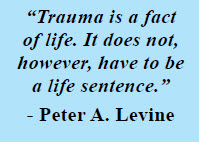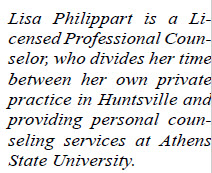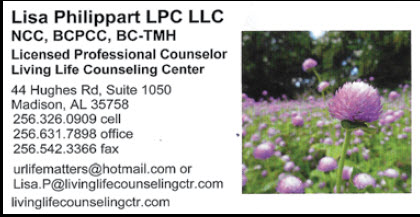 By: Lisa Philippart
By: Lisa Philippart
In my two previous articles, I presented ways to recognize the signs of trauma bonding and then shared the causes of traumatic bonds. In this article, we will learn how to break those bonds. People who experienced abuse in childhood often feel drawn to similar relationships in adulthood because the brain already recognizes the highs and lows of the cycle. A history of trauma can make it even harder to break trauma bonds, but you can learn to stop this cycle. These tips can help:
Know what you are dealing with: You’ve heard the phrase, “Awareness is the first step.” Recognizing the existence of the bond is an important first phase of recovery. However, I am fully “aware” that when it comes to abuse, of course, this is often easier said than done. To find evidence for abuse and recognize the signs of trauma bonding, you might try keeping a journal. Writing down things that happen each day can help you begin to identify patterns and notice problems with behavior that may not seem abusive in the moment. When abuse does happen, note what happened and whether your partner said anything afterward to excuse their behavior.
 Consider the relationship from another perspective: Pretend you are reading about your relationship in a book or hearing about it from a good friend. It’s often easier to examine negative events when you have some level of detachment. Pay attention to the small details that make you uncomfortable or give you pause. Does the relationship truly feel healthy to you? It’s not easy to open up about abuse. Maybe you got angry or brushed off by friends or family when they expressed concern in the past. Yet your loved ones can offer essential perspective. Challenge yourself to listen and make a real effort to consider the accuracy of their observations.
Consider the relationship from another perspective: Pretend you are reading about your relationship in a book or hearing about it from a good friend. It’s often easier to examine negative events when you have some level of detachment. Pay attention to the small details that make you uncomfortable or give you pause. Does the relationship truly feel healthy to you? It’s not easy to open up about abuse. Maybe you got angry or brushed off by friends or family when they expressed concern in the past. Yet your loved ones can offer essential perspective. Challenge yourself to listen and make a real effort to consider the accuracy of their observations.
Avoid self-blame: Believing you caused the abuse or brought it on yourself can make it harder to exercise your independence, effectively keeping you in the relationship. Remind yourself that abuse is never your fault, no matter what….no matter what you may or may not have done, no matter how deeply you fear loneliness or a life without them, and no matter how many times you’ve already gone back. You do deserve better. You can learn to replace that self-criticism and blame with positive affirmations and positive self-talk. Doing this can help the truth of you deserving better to take hold.
 Cut off contact completely: Once you make the decision to leave, disrupt the cycle completely by stopping all communication. If you co-parent, this might not be possible, but a therapist can help you establish a plan to maintain only necessary contact. Create physical distance by finding a safe place to stay, such as with a friend or relative. Also consider changing your phone number and email address if possible. If you can’t do that, then block them completely on all platforms, including and especially on social media.
Cut off contact completely: Once you make the decision to leave, disrupt the cycle completely by stopping all communication. If you co-parent, this might not be possible, but a therapist can help you establish a plan to maintain only necessary contact. Create physical distance by finding a safe place to stay, such as with a friend or relative. Also consider changing your phone number and email address if possible. If you can’t do that, then block them completely on all platforms, including and especially on social media.
Important Reminder: The abuser might insist they’ll change, go to therapy, do anything, as long as you’ll come back or take them back. These promises can seem pretty tempting. Remind yourself, though, of just how many times they’ve already promised to change.
Resources: National Domestic Violence Hotline, thehotline.org, 800-799-SAFE
Locally: Crisis Services of North Alabama, csna.org, 256-716-1000
By: Lisa Philippart
Licensed Professional Counselor







